Follow Us!
- Queens Office
247-11 Union Turnpike
Bellerose, NY 11426
Manhattan Office
15 East 40th Street
Suite 201
New York, NY 100161-888-607-3360 Clinic Hours
Sun - Sat7:30 am - 7:30 pmBy Appointment Only
-
Most major insurance accepted
Click here to verify if your insurance covers Acupuncture
If uninsured, we also accept Mastercard and Visa
Acupuncture can give you greater quality of life
Health WellNews
Cultivating Defensive Qi to Fight Summer Allergies
As the rebirth of Spring gives way to the long, hot days of summer, seasonal allergies may not go away with the change of season but might just shift to a new or more intense set of symptoms. These warmer temperatures can lead to even more pollen production which can lead to even harsher symptoms that Spring produced.
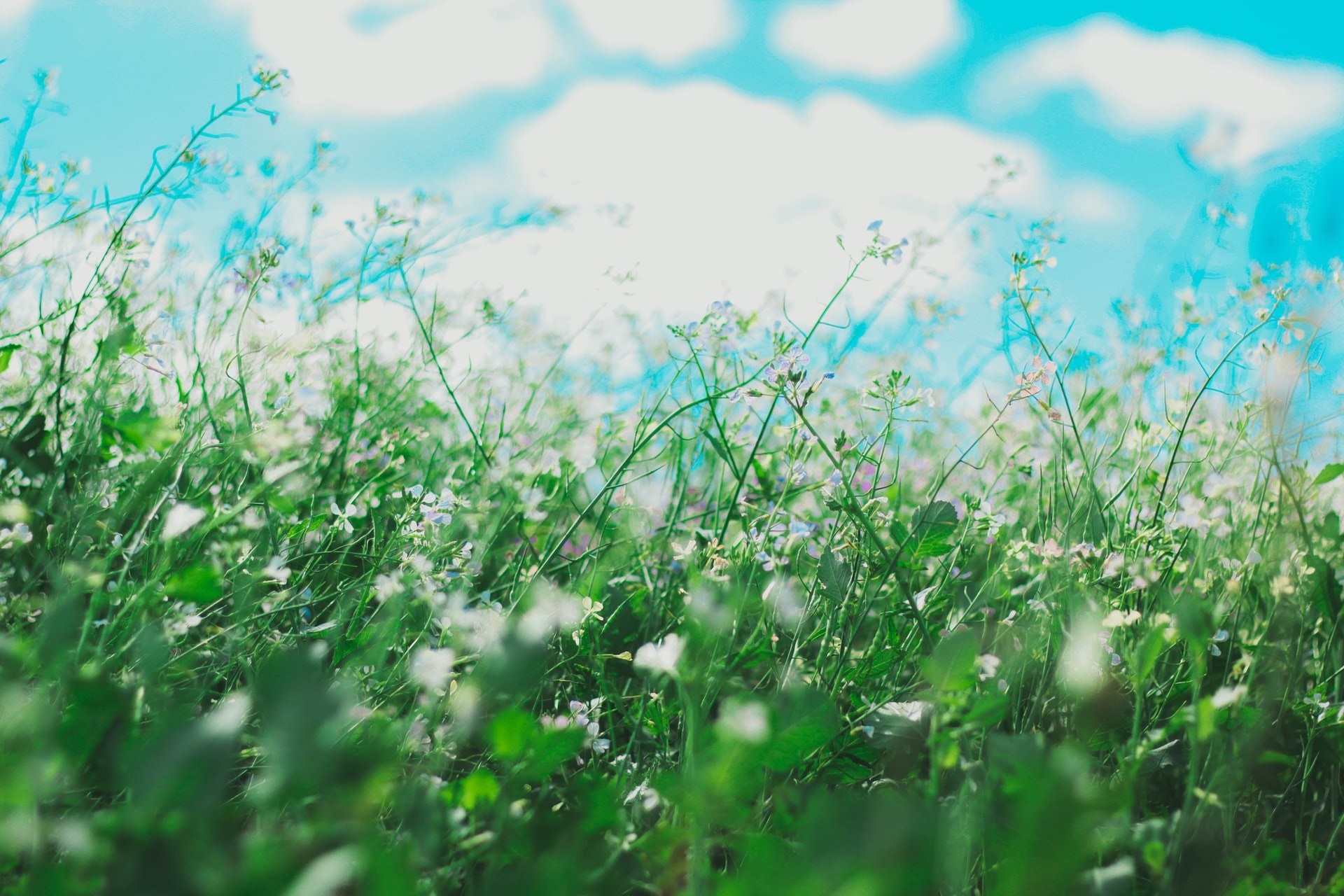
While Spring allergy season brings the pollen from the trees and flowers, summer is the time for grasses and weeds to release their pollen which then triggers a whole new round of sneezing, watery and red eyes. While pollen is still the main culprit, weeds like ragweed (the most common allergy because it can travel for hundreds of miles in the wind), sagebrush, tumbleweed, and pigweed to name a few will bring their own set of irritants. And grasses like Bermuda, blue grasses, sweet vernal and red top will also cause havoc for the sinuses. And don’t forget the increase in pet hair as pets shed to keep cool in the warm summer months.
And adding another layer of irritation is the insect bites that come from some of summer’s new residents like bees, wasps, yellow jackets, and fire ants. Dust mites also peak during summer and thrive in warm, humid temperatures.
Instead of just treating the symptoms of seasonal allergies, acupuncture goes to the root problem by rebalancing the body’s energy systems, enhancing the immune system, and helping the body to heal naturally. Your acupuncturist will go through a complete health history to help you determine the cause of the allergies and target meridians on the body including the lungs, stomach, spleen, and colon to circulate qi (a type of energy connected to immunity) and provide a defense against seasonal allergies. Stimulating certain acupuncture points on the body will lead to a restoration of balance and relief from the sometimes debilitating symptoms of seasonal allergies.
For a one-two punch in fighting your summer allergy symptoms, take the following precautions as you begin your acupuncture treatments:
- Limit your time outdoors when pollen counts, and smog levels are too high.
- Use an air purifier to keep pollutants at bay.
- Make sure you regularly clean air filters, vents, and anywhere pollen can collect.
- Wash your bedding and rugs in hot water so dust mites don’t have a chance to attack.
- Dust and vacuum often and use a vacuum with a HEPA filter.
- Wear a mask when cleaning and working in your yard.
Your acupuncturist may also develop an herbal formula to help you deal with your allergy symptoms. Herbs are a great addition to your treatments so talk to your acupuncturist about all your options. Don’t spend another groggy day suffering from your symptoms and the effects of the over-the-counter medications. Let your acupuncturist help you develop a safe and effective treatment protocol, so summer allergies don’t leave you hiding inside during these warm months.
3 Tips for Healthy Summer Fun
Summer is here and it’s time to get out and enjoy the warm weather. But it’s also important to stay safe and healthy so here are three tips to help you stay healthy while enjoying these longer days.

The first tip is to get up and move! Now that it stays lighter into the evening hours, make sure you can get outside and move. This is especially important if you have a job where you sit most of the day. The Centers for Disease Control and Prevention recommends at least 150 minutes of aerobic physical activity every week. This increase in action has immediate benefits like better sleep and reduced stress and anxiety.
The second tip is to protect your skin by using proper sunscreen and taking care of your skin throughout the summer months. The most natural way to protect your skin is to cover up when out in the sun. This includes long sleeve sun guards, hats, sunglasses, and bathing suit coverups. Using an SPF sunscreen is also important, as is building up your exposure slowly, especially if you live most of the year in a cold climate.
The third tip is to add more delicious summer fruits and veggies to your diet. You may have heard of “eating the rainbow,” which means eating foods that are each color of the rainbow regularly. Another suggestion is to make half of your plate veggies. This is easier to do in the summer when there are so many delicious fruits and vegetables that are in season and easily available.
And a bonus tip is to make sure you stay hydrated! If you are going to be spending the day out and about in the heat (especially if you are exercising or otherwise exerting yourself) you should boost your water intake. It’s recommended to add 12 ounces of water for every 30 minutes you spend in the heat sweating.
Use these tips to make the most of this time of year where the days are longer and warmer than usual, and you can get out and enjoy the fresh air and sunshine. Your body will appreciate the Vitamin D, exercise, and heathy eating!
A Taste of Summer
Summer brings with it a variety of vegetables and fruits that aren’t available during the rest of the year. Two of the most abundant ingredients are tomatoes and zucchini. Here’s a great recipe that combines both for a dish you can make at home or share at a summer BBQ. This zucchini and tomato bake only takes minutes to prep and can help you use those vegetables before they spoil.
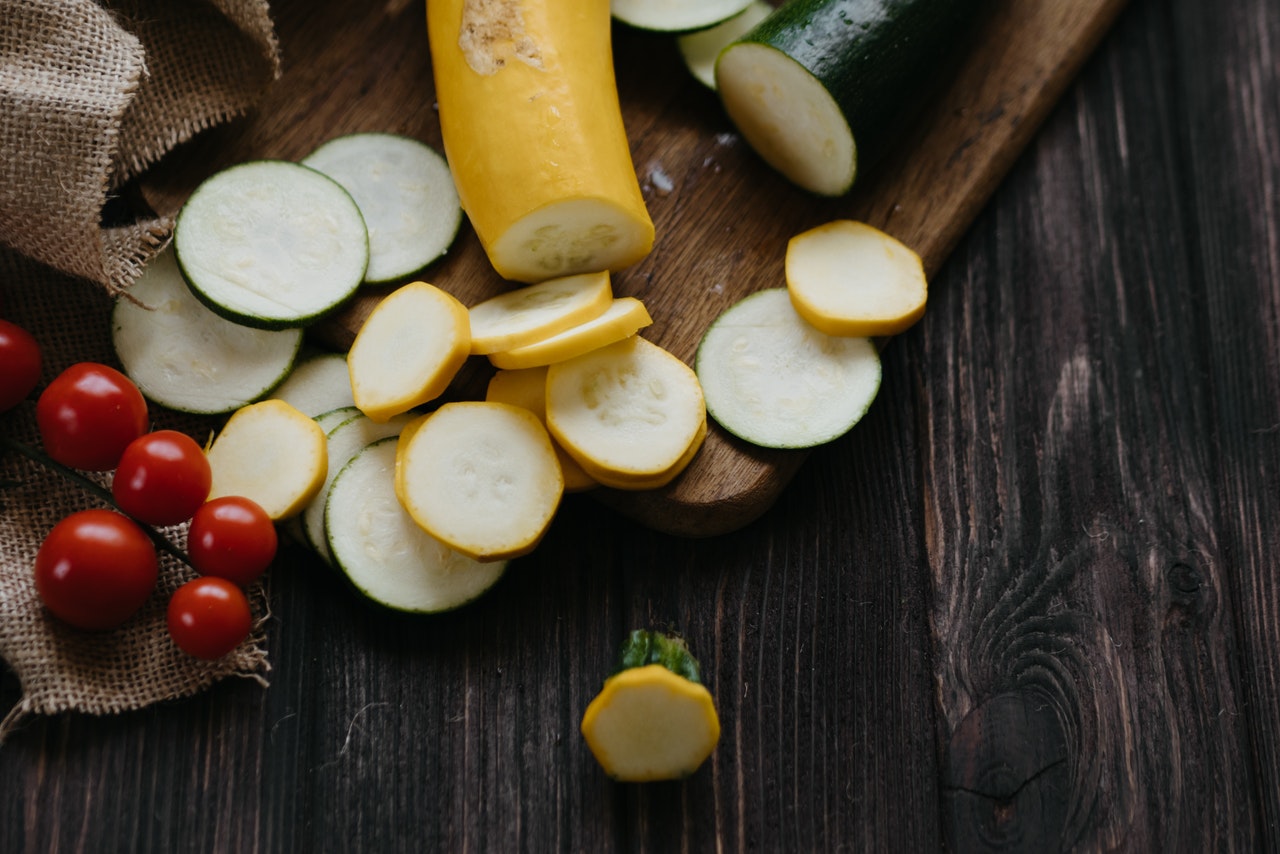
The ingredient list is simple:
- 3 medium zucchinis, chopped
- 1 pint of cherry tomatoes, halved) If you want to really be fancy, use the multi-colored tomatoes
- 2 cloves of minced garlic
- Extra-virgin olive oil for a final drizzle
- Kosher salt and freshly ground black pepper
- 1/3 cup of freshly grated parmesan cheese
- 2 tablespoons of basil, torn for garnish
And putting this dish together is quick and simple. Preheat your oven to 350 degrees. In a large bowl, combine the chopped zucchini, halved tomatoes, garlic, olive oil drizzle, salt and pepper to taste and mix everything until it is well combined. Pour vegetables in a small baking dish and sprinkle with parmesan. Bake 35 minutes until golden brown and delicious! Add the basil garnish and serve.
Don’t let summer pass without making this dish that combines two of summer’s greatest culinary gifts.
Spring Cleaning the Mind: Meditation in this New Season
Many people have issues “turning off their brain” to go to sleep or even just to relax. And for others this inability to “quiet the mind” can bring its own set of stress and anxiety. It might seem like an impossible task for some, but the steps to begin a regular meditation habit are simple and easy to attain.
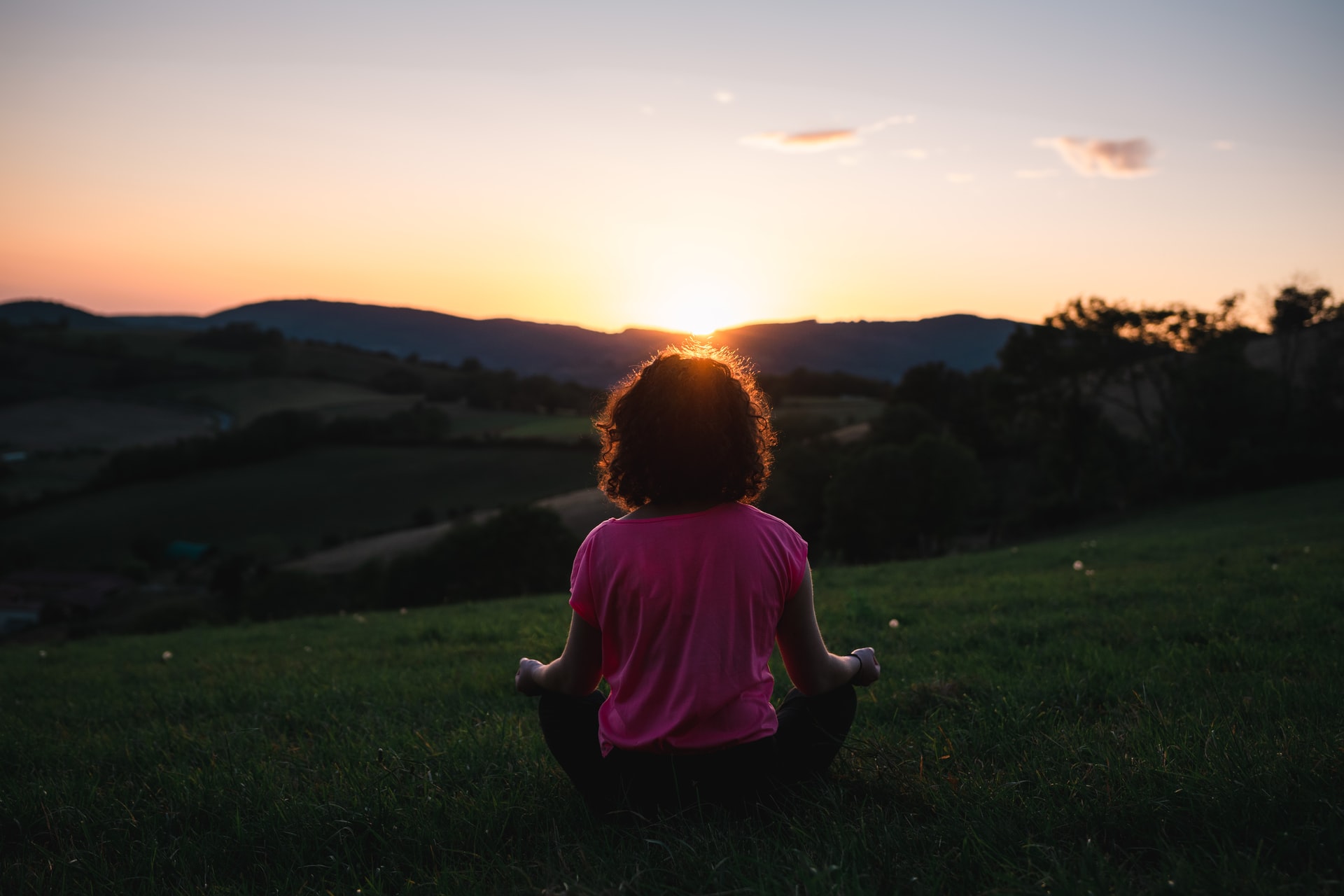
Even mainstream medical practitioners recognize the positive impact of meditation, a type of mind-body medicine that has been practiced for thousands of years. It doesn’t have to be complicated to get started. It’s as simple as finding a quiet room, a comfortable position, focused attention, and an open attitude. And one of the best tips might not be something you have even considered before: don’t try so hard.
There are many helpful apps, programs, and websites that can help you begin but the main thing you want to do is don’t set your expectations super high as you begin. Set a goal and go with it. For example, better sleep, reduced anxiety, or stress relief. And don’t be afraid to try different methods of meditation until you find one you are comfortable with.
After setting your goal or intention as it is sometimes called, create a space that is comfortable and free of distractions and noise. Some people like to keep things minimalist while others like to add things that make them comfortable or bring joy (like candles, plants essential oils, or special lighting). If you are using a guided meditation app or program, you might consider using earbuds to cut out the distractions and noise.
Now that you have set a goal and created a space, the next tip is to make your meditation a daily routine. Just like finding daily time to exercise, setting a time to meditate helps ensure you will make it a habit. For some, this might mean meditating first thing in the morning before the day begins. For others, meditating nightly before bed helps quiet the mind for better sleep.
No matter what meditation method you choose, just beginning the journey is a step in the right direction. Meditation can help both your mental and physical health so developing a consistent practice is the key to success. Just get started and be open to where the path takes you!
Enjoying a Taste of Spring
After the soups and comfort foods of fall and winter, it’s time to enjoy the harvest of Spring vegetables. Nothing heralds the arrival of Spring and warmer temperatures like a nice Spring Harvest Salad. Depending on where you live, these vegetables may vary a bit in their arrival time but adjust the ingredients and ratios to your preferences.
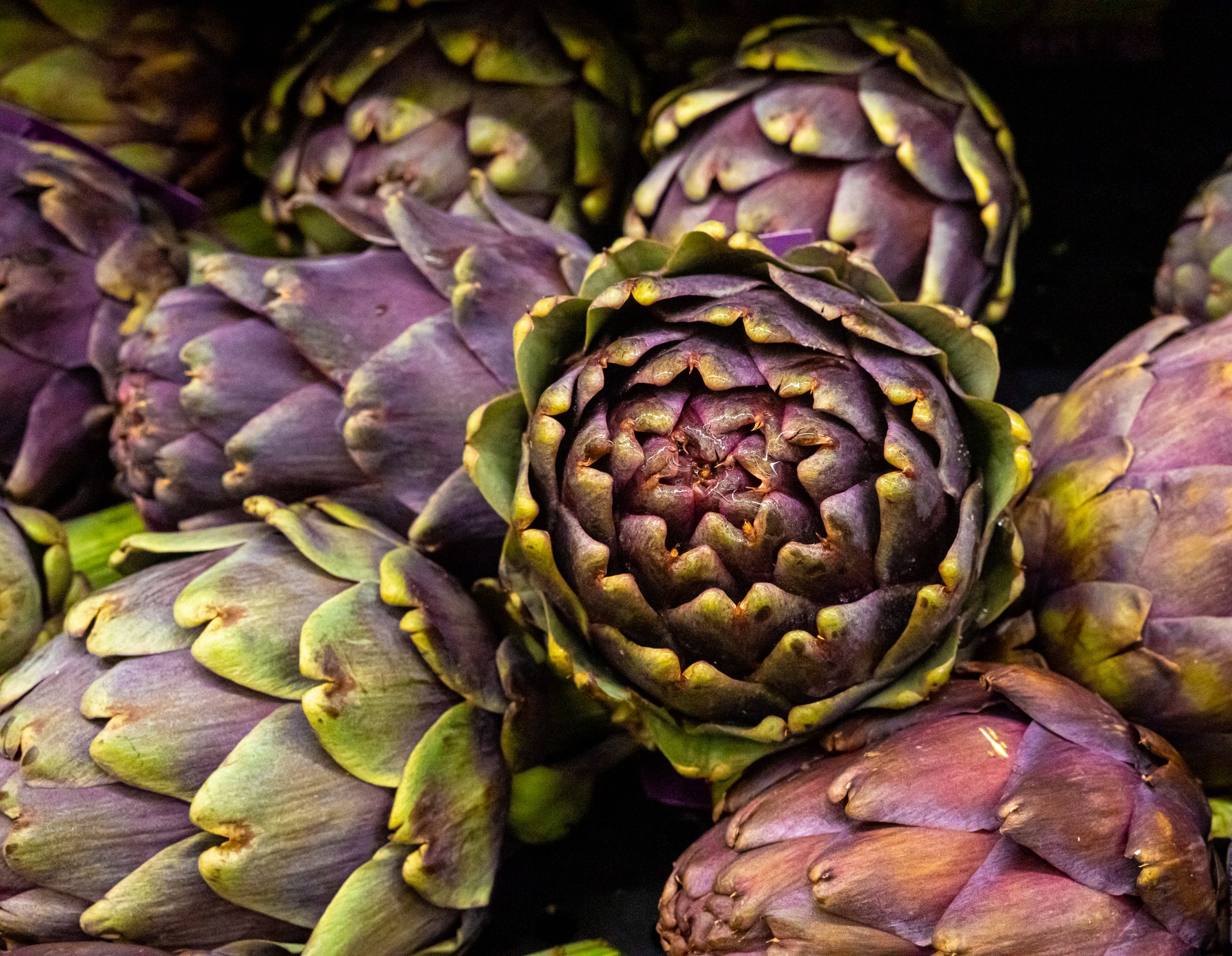
Spring leaf lettuce (and some other varieties depending on where you live) can be plentiful this time of year so enjoy this early harvest of greens and mix and match to your taste buds. Spinach is also a great addition to any salad and packs a great nutritional punch. Spring onions are also plentiful this time of year as they are one of the first vegetables ready to harvest in early Spring.
This salad begins with spring leaf lettuce, spinach, and if you like that peppery bite, a bit of arugula. Artichokes are also in season in the spring so adding those delicious hearts is a great option. Throw in some sliced strawberries and some of those spring onions and you have the base to a beautiful salad!
Dressings can vary by preference as some want to keep the flavors as the star but here is a simple dressing for this amazing salad.
- 4 teaspoons of lemon juice
- 2 ½ teaspoons of olive oil
- 1 tablespoon of balsamic vinegar
- 1 ½ teaspoons of Dijon mustard
- Pinch of salt and pepper
Adding a bit of feta cheese and some sliced toasted almonds takes this salad over the top. Bon Appetite!
Clearing the Wind: Dealing with the Seasonal Allergies of Spring
Spring is a beautiful rebirth after a sometimes long, cold, and harsh winter. However, if you suffer from seasonal allergies, you know that this rebirth of Spring brings with it a release of pollen that can trigger hay fever. As plants, trees, grasses, and weeds begin to release their pollen, millions of people begin to sneeze and sniffle.
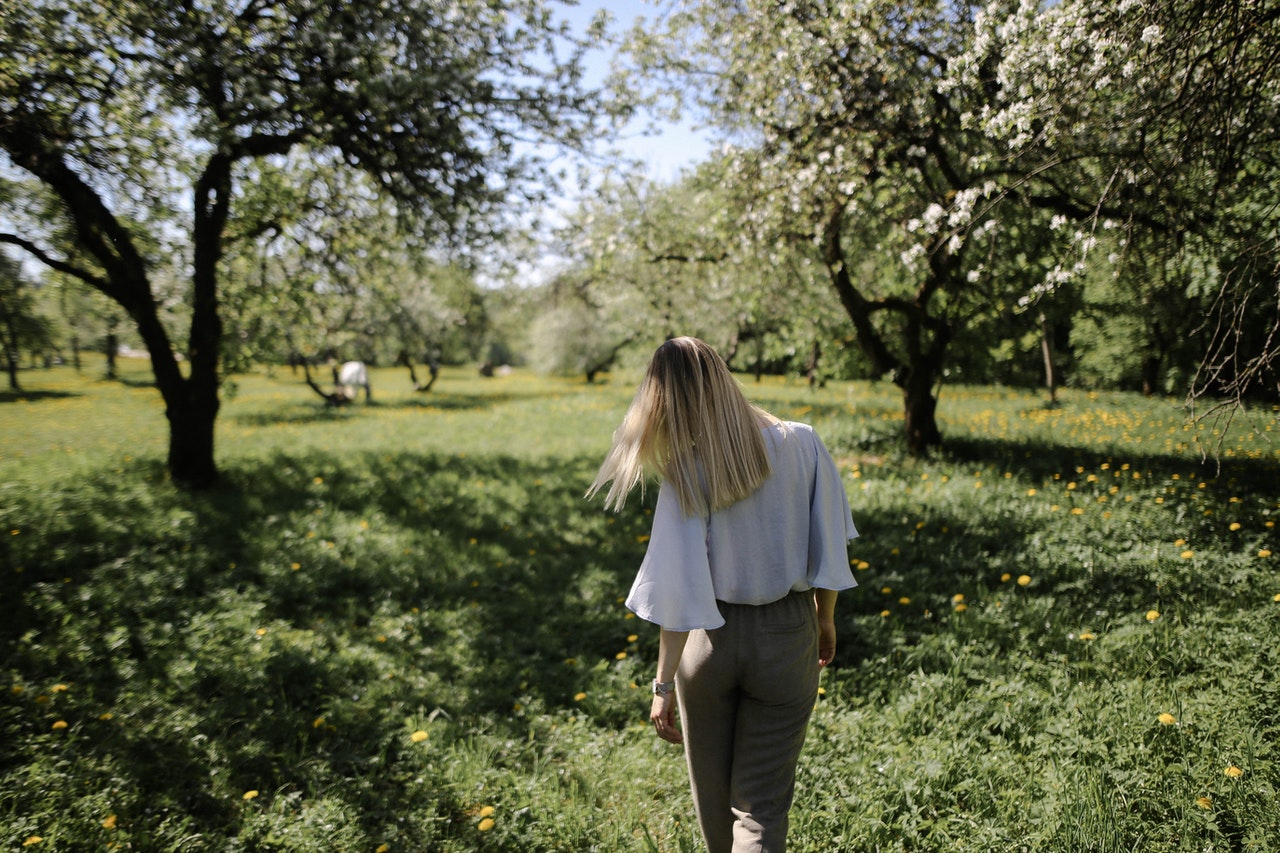
Symptoms include a stuffy nose, itchy eyes, nose, and throat, coughing, and nasal congestion. What happens is the body detects the pollen in the system and thinks it needs to attack this foreign substance. Histamines get released into the body and the war of seasonal allergies begins.
Over-counter-medications are often the first line of defense but can bring additional side effects and they treat the symptom but not the root cause. Clinical research demonstrates the effectiveness of acupuncture in treating seasonal allergies. Specific treatment points differ according to a person’s symptoms but common points that might be addressed include L120, ST2, and ST36 to deal with Qi deficiencies to get to the root of the problem. If you are sensitive to prescription medications, acupuncture is a great drug-free option to help relieve the symptoms of seasonal Spring allergies.
In addition to acupuncture treatments, there are other steps you can take to minimize your symptoms.
- Do a spring cleaning and clean out particularly dusty or moldy areas of your home like air vents, basements, and attics.
- Stick to indoor activities to minimize pollen exposure
- Keep doors and windows closed.
- Take a shower to rinse off pollen after outdoor activities.
The root cause of allergies is different for everyone. Another popular and helpful option to explore with an acupuncturist or Traditional Chinese Medicine practitioner is adding herbal formulas to your treatment plan as this can greatly increase the efficacy of the treatments. Adding herbal formulas along with the traditional needle treatment can be an effective one-two punch for treating seasonal Spring allergies.
Change your diet, change your blood
What is diabetes? Type 2 diabetes is an epidemic in the west and is usually caused by the production of too much insulin. Why is there too much insulin? Simply put, the insulin is there to combat the amount of glucose in the blood. And carbohydrate foods are quickly turned into glucose in the bloodstream. A diabetic’s blood is tested over a period of 90 days. A popular treatment protocol is using medication with more insulin to bring blood glucose down, but dramatically reducing the amount of carbohydrates consumed actually treats it from a ‘Ben’ level.
In Chinese Medicine we talk about the ‘Ben’ and ‘Biao’. The Ben is the root of the issue and the Biao is the manifestation. In this case the Ben would be the amount of carbohydrate consumed and the Biao would be the body over producing insulin to combat it. When looked at in this way it becomes obvious that to medicate with more insulin may not only be unnecessary, but it could potentially do more harm by perpetuating the long-term progression of the disease, which can lead to more dire symptoms.
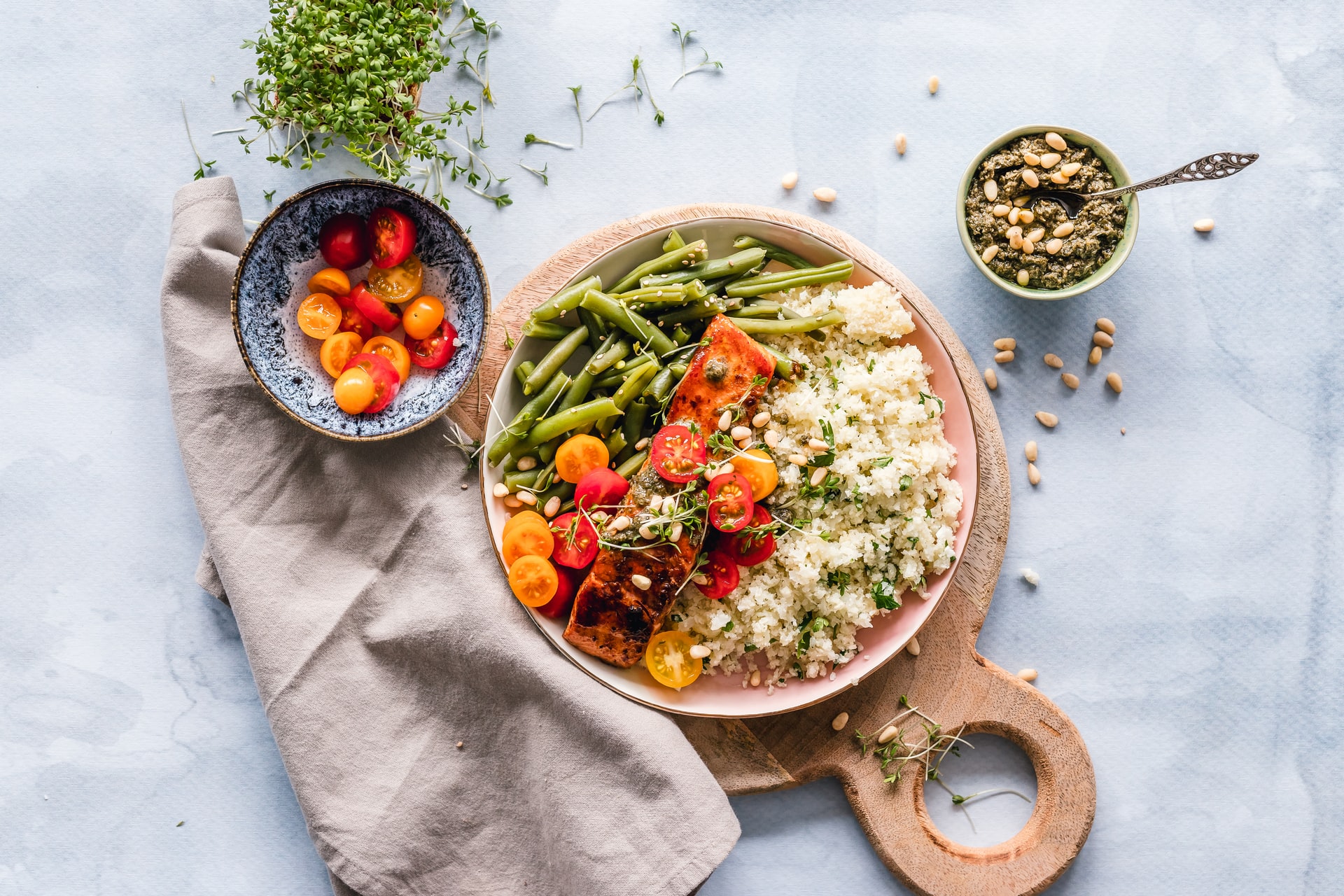
Acupuncture treatment can help us to treat the ‘Ben’ by strengthening the organs of the Stomach and Spleen. In Chinese medicine, the function of the Spleen also includes the Pancreas and is often called the Spleen/Pancreas Official. The pancreas is the organ which western medicine understands to produce insulin, which regulates blood sugar levels. When the Spleen meridian organ system is out of balance, it tends towards deficiency and weakness. When the Spleen is no longer functioning properly, we tend to crave sugary foods. The more sugar we eat, the more we can weaken the function of the Spleen, and then the more we crave.
According to Chinese medical thought, almost all addictions stem from some sort of meridian and organ imbalance. The cure for addiction is to strengthen the Qi of the affected organ, the most effective way to do that is through acupuncture treatment which works on the Qi level.
Traditional Chinese Medicine diagnoses for the disease is very different, it looks at differentiations of patterns – meaning different patients present with different patterns of diagnosis according to their varying constitutional types and lifestyle factors. Chinese medicine says that Yin is always deficient, whether that is Lung Yin in the case of diagnosis with excessive thirst. Stomach Yin in the case of diagnosis with excessive hunger, or Kidney Yin in the case of diagnosis with excessive urination. Ways Chinese medicine treatment can bring the Yin back into balance is acupuncture, herbs and rest. In a nutshell, Yin is stillness, rest, sleep. Yang is our active mode. The reason many westerners are imbalanced in their internal Yin is they do not rest enough. This is something simple we can all do more of for greater health.
So in summary the best ways to treat and even reverse your type 2 diabetes diagnosis are diet – reducing sugar and carbohydrate intake to a minimum. And seek out alternatives that can help – acupuncture can help to strengthen organs of digestion helping to reduce sugar cravings. The integration of acupuncture with herbs, can quickly rebalance the internal Yin and Yang of affected organs. More rest – be more Yin!
Foods to address diabetes (Type 2)
- Beans/legumes
- Dairy products
- Dietary fiber
- Dried fruits
- Fish
- Fruits
- Nuts
- Plant protein (decreases the risk of type 2 diabetes in females)
- Polyunsaturated fats
- Seafood omega-3s
- Seeds
- Vegetables
- Whole grains
- Yogurt
Foods to avoid to reduce the risk of diabetes
- High glycemic index and high glycemic load foods
- Nonnutritive sweeteners
- Processed meats
- Red meat and processed meat
- Sugar-sweetened beverages
- Total protein and animal protein
- Trans-fats
- Unprocessed red meats
- Yogurt
Balance Your Sleep Cycle
Insomnia is a growing problem in the Western world. Recent polls show approximately 60 million Americans suffer from some sort of insomnia and nearly nine million of those take a prescription sleep aid. Wow. These numbers are far too high and even though there are lots of alternative and natural methods to fight insomnia, more and more people are going to the doctor to get a prescription. The drawback? Most prescription medications have numerous and sometimes deadly side effects. So let’s look at some ways to get the sleep cycle back on track without turning to prescription medications.

One of the great things about technology is you have everything virtually at your fingertips 24 hours a day. But there’s a lot to be said for unplugging from the Internet. Camping has shown to completely reset the sleep cycle of insomniacs. Your body will actually be able to reset itself after a couple of days, thus allowing your circadian rhythms to do their job and get you back into a proper sleeping pattern. Another way to reset your sleep cycle is to stick to a routine. Set a bedtime and stick to it. This way you are actually training your brain to go to sleep. Do the same things nightly before going to bed too, like having a cup of tea or reading for 30 minutes.
Pay attention to lighting. At night, your house and especially your bedroom should be dark, this signals the brain that it needs to start shutting down. That’s why you should not have a television in the bedroom. Also, when you wake up in the morning, be sure to turn on lots of bright lights or open the shades to let in natural light. This signals the brain to wake up and get going. Doing this regularly will help train your brain and balance your circadian rhythm. Get in some daily exercise. Studies show that people who exercise regularly tend to sleep better and also feel less drowsy in the morning. But make sure to do the right types of exercise at the right times. Save intense exercise classes for mornings and do something more relaxing before going to bed, like bedtime yoga.
Stop ingesting caffeine, alcohol and nicotine. Coffee and caffeine-laden sodas may wake you up in the morning, but if you drink them with dinner, you’re setting yourself up for a restless night. Just do the best thing you can for your body and give up caffeine altogether. Also, many people think a glass of wine or a beer before bed is a good way to unwind. Wrong. Alcohol may bring on sleep initially, but a few hours after you lay down, it acts as a stimulant, causing you to wake up multiple times throughout the night. It’s best to have your last drink about three to four hours before you plan on going to bed. Nicotine works in the same way, just say no and get some sleep instead. Go easy on the late night meals/snacks. When we eat too much too late at night, we set ourselves up for a restless night. Indigestion from eating too late is common. If you’re still hungry right before going to bed, try something light and healthy, like a tablespoon of peanut butter or a handful of almonds.
Give acupuncture a try. Acupuncture balances hormones and fixes imbalances in the body. Thousands of acupuncture patients have gotten favorable results when it comes to insomnia. And, should you need a sleeping aid, herbal formulas are a much better solution to prescription medications. There are many ways to battle insomnia and balance your sleeping patterns. We have mentioned just a few here. So give them a try, find the ones you resonate most with and stick to it. Life can only get better if you do.
Tea for ZZZZs
Getting enough zzzz’s is vital for your body to renew, recharge and rebalance. When you sleep (a good night’s sleep) your body heals and grows stronger. If you’re not getting enough of it, eventually it can affect your health and wellbeing. Below is a list of herbs known to help you catch more solid zzzz’s.
But keep in mind, always check in with a professional. Herbs are medicinal and you should talk with someone who knows how to properly administer them.
- Valerian Root: Helpful when you’re having a hard time sleeping due to anxiety or stress.
- Poppy Plant: Acts as a mild sedative to help encourage a deep sleep when you’re feeling restless and achy.
- Chamomile: Contains antioxidants that help promote sleepiness and alleviate insomnia.
- Lavender Buds: Can improve your sleep quality and relax you too.
Foods for the Winter Season
Everybody knows that food is what gives our bodies the energy we need to survive. But not everybody is aware that certain foods should be consumed during specific times of the year. In areas like the Midwest, where fruits and vegetables are harder to keep on hand when the weather becomes colder, this principle is followed a little more closely. But in areas like Hawaii and Southern California, where fresh fruits and vegetables are always available and the climate is more moderate, people sometimes forget to eat according to the seasons.
Traditional Chinese Medicine is a medical system that has been around for nearly 4,000 years. When this system came into being, people were much more in tune with the seasons and their environment. The foods they consumed were based on the seasons and when those foods were available. This is a system that should be followed for people to remain healthy throughout the year, regardless of where they live.
In Traditional Chinese Medicine, winter is a time of reflection and rejuvenation. The body needs the extra hours of darkness to repair. The kidneys are the center of energy in the Traditional Chinese Medicine system and thus, they need to be nourished during the winter months. It is recommended we consume foods that are warming and that will boost the kidney energy. We also need to eat foods that benefit the Shen (spirit) so that the winter months don’t bring about depression.
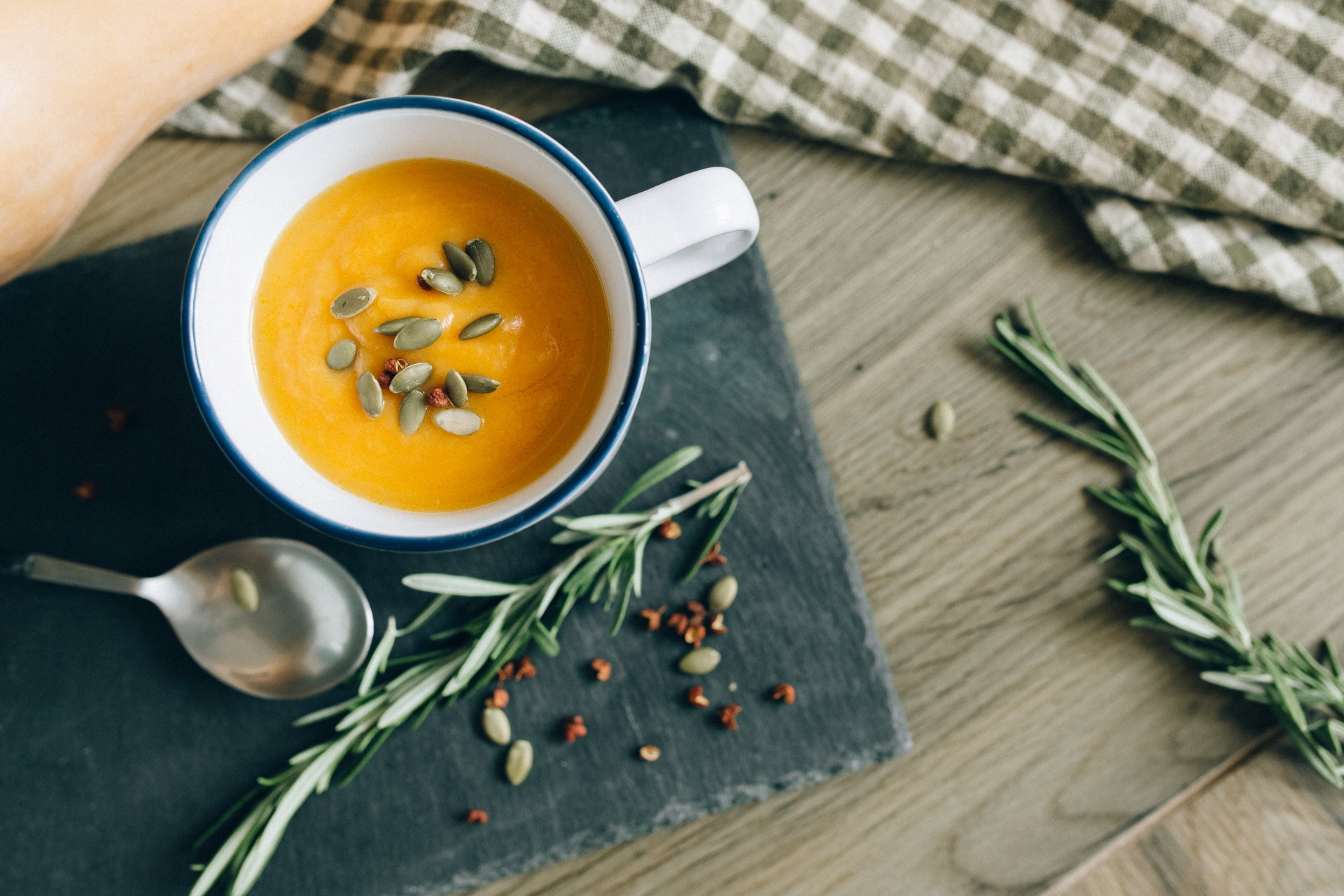
Things like soups and stews are extremely important during the cold winter months. Energetically, warming foods such as anchovies, bay leaves, chestnuts, chicken, fennel, leeks, mussels, mutton, nutmeg, pine nuts, sweet potatoes and walnuts are all great to incorporate into the diet. Also, foods that boost kidney energy are just as important. Items like millet, sesame seeds, kidney beans, lamb, beef, goose, duck, eggs, grains, seeds and nuts are all good tonics for the kidneys. Bone broth is another important food to consume during the winter months, as it supports the bones and the kidneys. It is recommended that the foods be cooked for longer periods and at lower temperatures to retain as much energy as possible. It is also advisable to eat more food with bitter flavors while reducing salty flavors, so that heart health is promoted and the workload of the kidneys is reduced. Bitter-flavored foods include apricot, asparagus, celery, coffee, tea, grapefruit, lettuce, kale, vinegar and wine.
One of the most commonly used foods is something known as congee. Congee is a thick grain-based soup or porridge. Congee is used in a preventive fashion to promote good health and strong digestion. Congee can be made with a single grain, like brown rice, or a combination of grains, beans, vegetables and medicinal herbs. Incorporating this item into the daily diet will improve energy levels over time. Congee is prepared in a crock pot overnight, which fits in perfectly with the aforementioned principles of slow cooking at lower temperatures. It is said that the longer the congee cooks, the more powerful it becomes.
Kidney Bean, Tomato & Winter Squash Soup
- 2TBSP butter
- 1 medium red onion
- 4 cloves of garlic, halved
- ½ cup chopped celery
- ½ cup chopped parsnip
- ½ cup chopped yam
- 14 oz plum tomatoes
- Pinch of rosemary
- 3 slices of ginger
- 1-2 small dried hot red peppers
- 1 15 oz can of kidney beans
- 5 cups of water
- 3 cups of Kombachu or butternut or hubbard squash, diced into 1 inch cubes
- Salt to taste, ground pepper
- 1 TBSP balsamic vinegar
- Chopped cilantro/parsley garnish
Heat the butter in a saucepan oven and add the onion. Cook until it is just softened. Add the garlic, parsnip, yam and cook for about 3 minutes over medium heat. Add the tomatoes, rosemary, ginger, peppers, beans and water. Bring to a soft boil, reduce heat, cover and let simmer for about 1/2 hour – stir occasionally. Add squash and simmer for about 1 hour until the squash is tender. Check liquid levels, add water if necessary and don’t forget to stir occasionally. Add salt and ground pepper, adjust seasonings to personal taste. Garnish each bowl with a sprig of cilantro or parsley.
Autumn Immunity
ARMED & READY
Autumn is the season for strengthening our immune system! According to the 5 Element theory of Chinese Medicine, Autumn is the season of the metal element. The metal element is all about structure and boundaries and this is why it is the perfect time to reinforce our defenses when it comes to health and immunity.
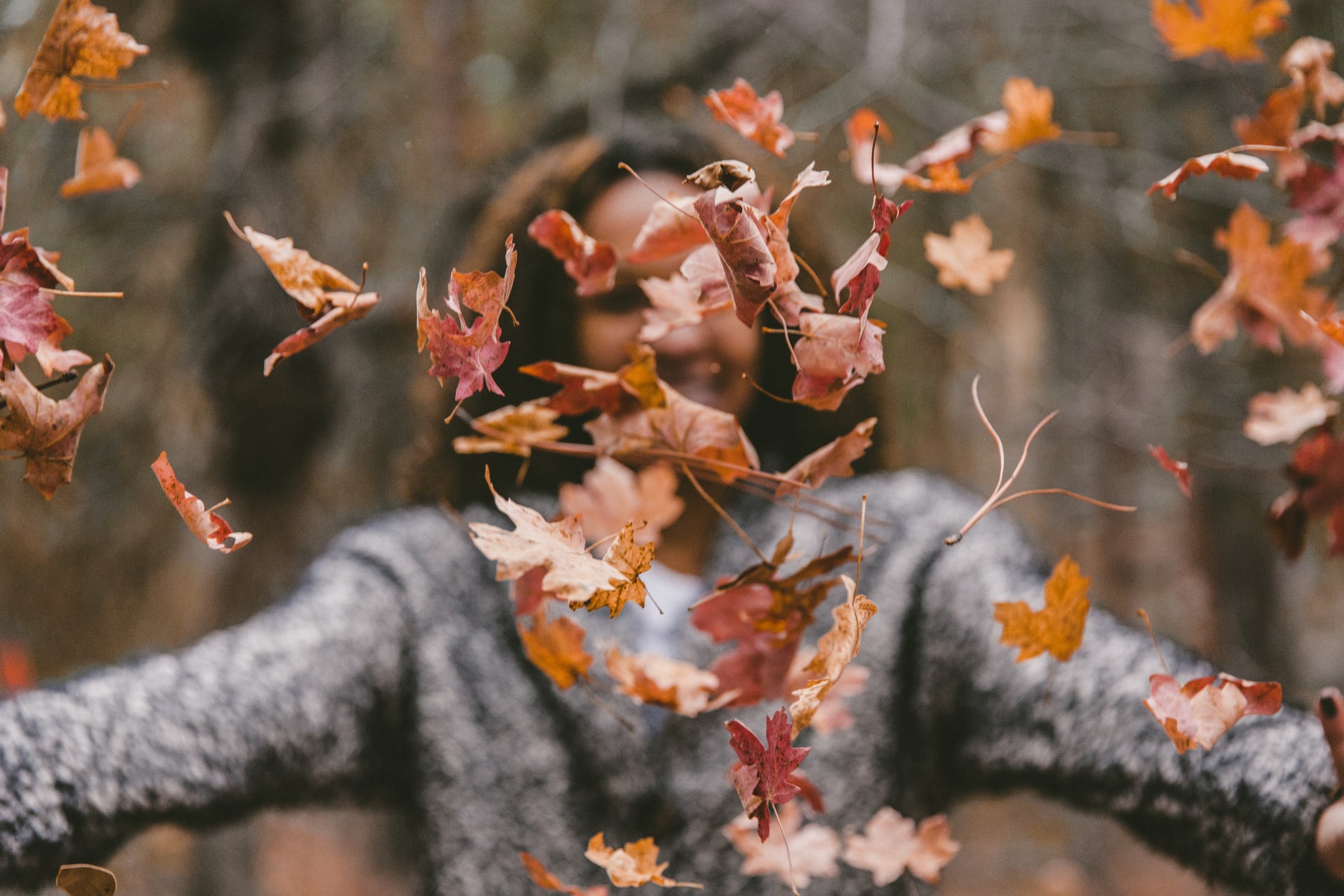
Organs of the season: Lung & Large Intestine are the organs of the metal element and the Autumn season. Together these organs form a protective layer against pathogenic factors that often enter through the respiratory and digestive systems. Their Chinese medicine function further explains their role in immunity. Lung commands the qi in the body and has a strong influence on what is called the wei qi or protective qi. Lungs also control skin, the biggest and most outward organ. They regulate the pores, controlling the opening and closing of the pores and help us to sweat when we need to push pathogens and toxins out of our system.
The Lungs are paired with the large intestine, which in western medicine is closely associated with immunity due to the role of the microbiome in preventing infections. In Chinese Medicine the large intestine function of elimination is the main focus. The process of eliminating body waste is crucial to prevent auto-toxicity and a sluggish system that can not defend itself efficiently. In addition to eliminating food waste and toxins, the large intestines are thought to help us move long-standing emotions out of the body. It is the organ that helps us let go.
The emotion of the season is grief as this is the time to shift more inward and release any excess. It is a time in nature when the bright fire of summer life and activity slows down and things begin to die as part of the cycle of nature. This brings with it an instinctual feeling of sadness as we mourn the loss of that life and begin to prepare for the quiet of winter. Any feelings of loss we have felt in our lives can present themselves during this time if we have not fully processed and released them.
Immune Support Tips:
The best way to support the body’s defenses is to bring it into a natural balance with itself and its environment. So, during the fall season, making sure to support the function of the Lungs and Large Intestine will have a lasting effect on immunity year-round.
Breathwork: cultivate your qi and enough oxygen to power your life by applying a little more awareness to your most intuitive function, your breathing. Breathe slow and deep and with loving intention.
Gentle exercise: will help strengthen your lungs and open your pores for sweat.
Dry-brush: your pores are breathing too. Help keep them clean by implementing a dry-brush routine for your skin before showers.
Sleep: the transition from summer to fall is a transition from yang to yin and therefore a time to slow down and get to bed earlier as the days get shorter. Your organs need the rest for repair and will thank you.
Avoid cold, damp (like dairy) and raw foods that slow the digestion and can create phlegm that burdens the lung function.
Eat healthy sources of fiber (nuts, seeds, lentils, legumes, whole grains, veggies and fruits) which assist the large intestine’s job of elimination and help to prevent constipation.
Stay hydrated: both the lungs and large intestines need the right balance of fluids to function properly and can be prone to dryness during the fall season.
Probiotics: Enrich your gut flora and mucosal immunity with fermented foods and probiotic supplements.
Feel and release grief: allow yourself to mourn loss in your life. Think: less judgement and more compassion. The more you make room for actually processing your feelings the easier it is to let them go and move on.
Chinese herbs: Immune boosting herbs like Ginseng, astragalus, cordyceps, and schisandra can lift the qi, nourish the lungs and help fight infections when needed.
Get ready for a fresh start in September with some immune-boosting acupuncture and Chinese herbal therapy! Give us a call today!